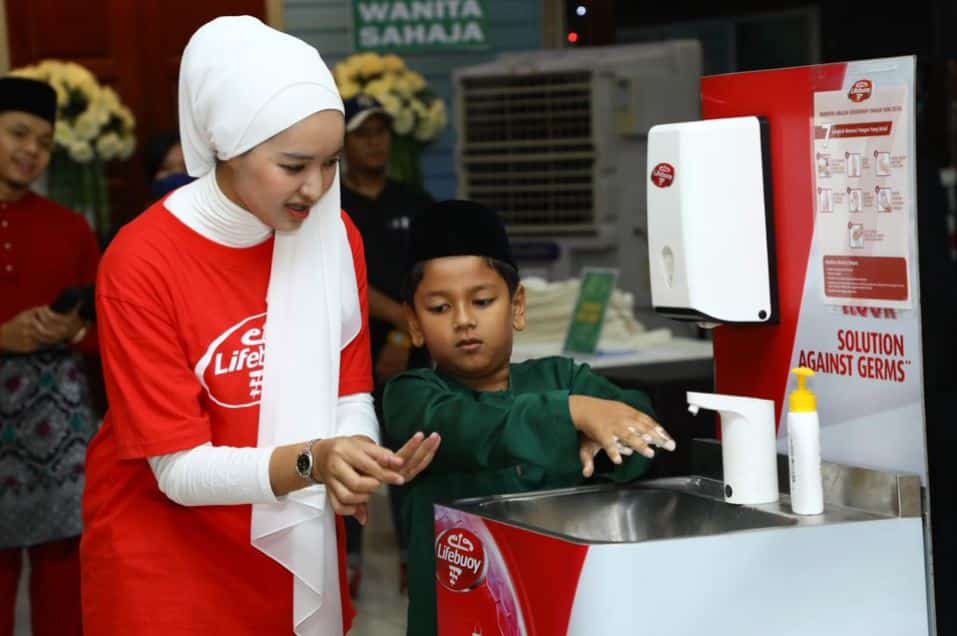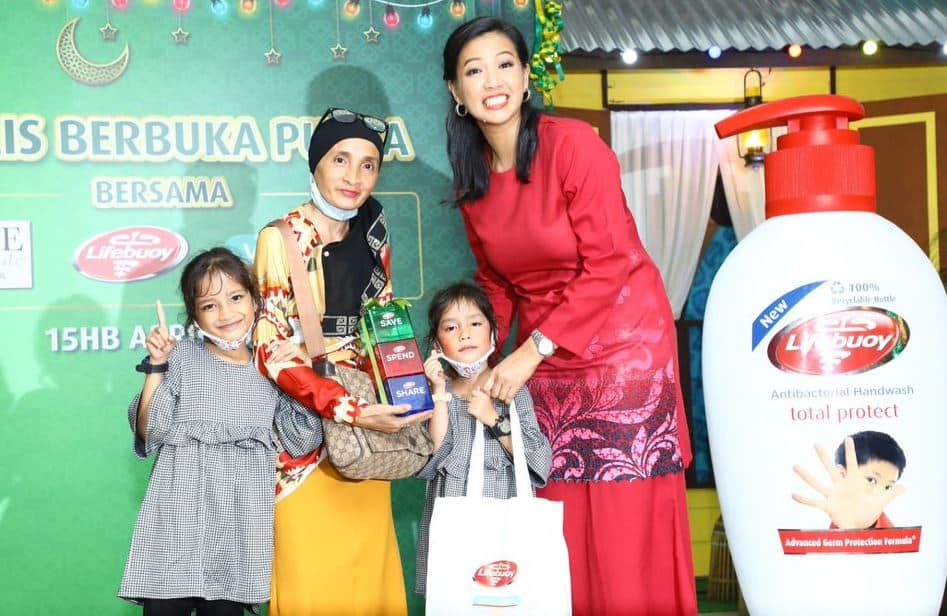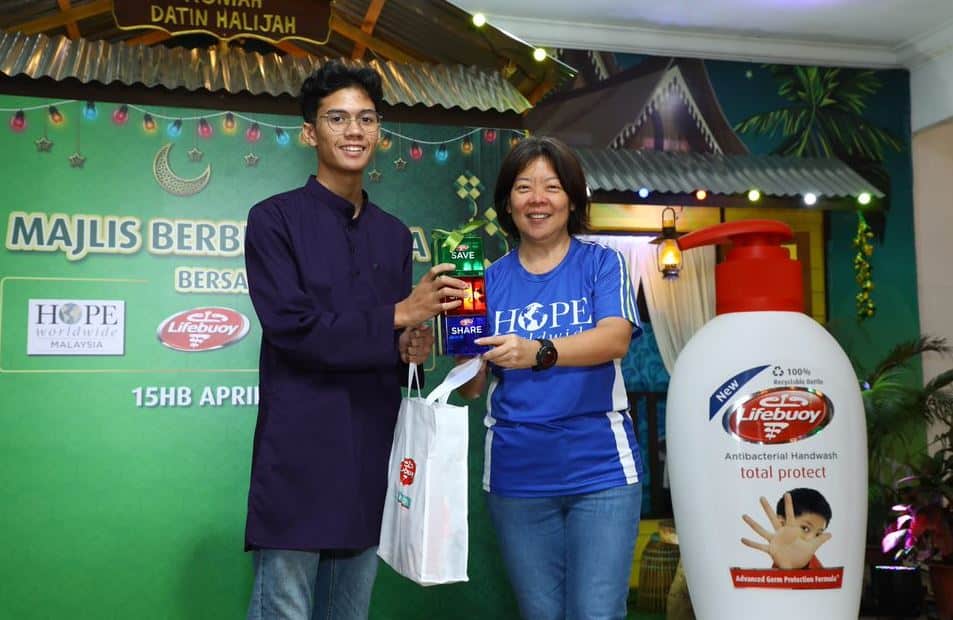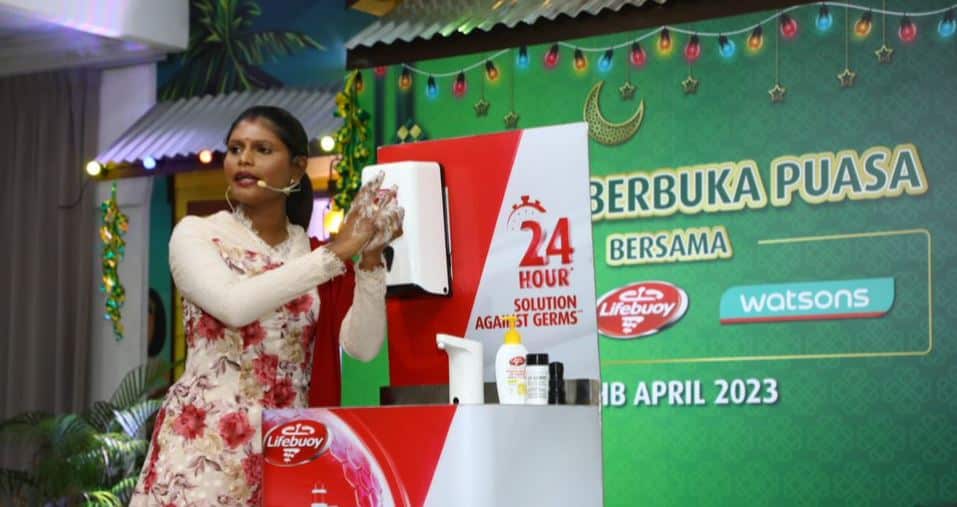
Lifebuoy makes the most of the blessed Ramadan by promoting the value of good hygiene while providing aid to those in need.
Lifebuoy has spearheaded hand hygiene literacy and advocacy for over a century and are committed to forge partnerships to expand access to hand hygiene in the community. The soap brand has been working with Unilever for almost a decade to make handwashing with soap a habit for all Malaysians and to keep families one step ahead of infections.
“Unilever’s heart has always been in protecting lives and livelihoods. That is why we have strived to create a germ-free community. Still, there is a gap, especially among less-privileged communities in access to basic handwashing essentials and education. So, we want to do what we can for our community to Bring HOPE and Change LIVES, and reinforce the significance of proper handwashing habits,” said Lenny Chuah, Country BU Lead of Personal Care, Malaysia, Singapore and Thailand, Head of Country, Unilever Malaysia.
Lenny Chuah attended the Majlis Berbuka Puasa Bersama Lifebuoy, Watsons, and HOPE Worldwide Malaysia event held on April 15. 40 underprivileged families were treated to a Malay-Middle Eastern feast to break their fast at the event held at Rumah Tamu Datin Halijah, Sentul.

The buka puasa event is part of Lifebuoy Malaysia’s “Bringing HOPE Changing LIVES” CSR initiative to enliven their Iftar and alleviate their daily challenges so that they feel included during the Ramadan and Hari Raya festivities.
Each family also received a pack of personal care provisions, which contained Lifebuoy bodywash and handwash, shampoos and healthcare products sponsored by Watsons Malaysia.
Lifebuoy has continuously donated hygiene care products to bridge access to hand hygiene for underprivileged communities.
Speaking about the donation, Katy Lee, Executive Director of HOPE Worldwide Malaysia shared, “It is crucial for our nation to be cautious to uphold good personal hygiene in the endemic era, likewise for the B40 families. We are grateful to Lifebuoy Malaysia for this partnership to educate and empower our beneficiaries from the B40 community, to walk with them, ensuring these families continue to uphold good personal hygiene, shielding themselves and their children from infectious diseases.”

Lifebuoy’s Initiative to Support Over 1,100 Underprivileged Families
Since the commencement of Lifebuoy’s outreach programs in 2015 across Malaysia, it has reached 536,113 children aged 4 to 9 as of 2022. In 2023, Lifebuoy aims to reach another 100,000 students, with the mission to help one million develop good handwashing habits by 2025. The donation of personal care provisions was also extended to over 1,100 underprivileged families across Malaysia under this initiative.
The core of its hygiene advocacy is centered around mobilizing hygiene education programs in the community and schools teaching adults and children alike about the importance of good handwashing habits.
As young children may not yet comprehend the importance of proper hand hygiene, the burden usually falls on parents to ensure diligent hygiene care in their child. However, putting food on the table and a child’s education usually take precedence for a parent, and with underprivileged families, their effort to prioritize these two components may often cause parents to overlook their child’s hygiene practices, causing them to fall sick more easily.
Handwashing is frequently overlooked due to a poor perception of health concerns, forgetfulness, and hard access to handwashing facilities. A 2020 study found that more over half of young children do not always wash their hands after playing outside, petting pets, or coughing or sneezing.
Dr Malar Santhi was invited to the event to impart the importance of hand hygiene. While demonstrating proper handwashing during the event, she stressed that it is doubly vital to protect young children who are more susceptible to infectious diseases through good hygiene practice because their immune system is still developing. The simple act of handwashing with soap is often the first barrier, and a sure way, to stop the spread of germs that cause infectious diseases.












